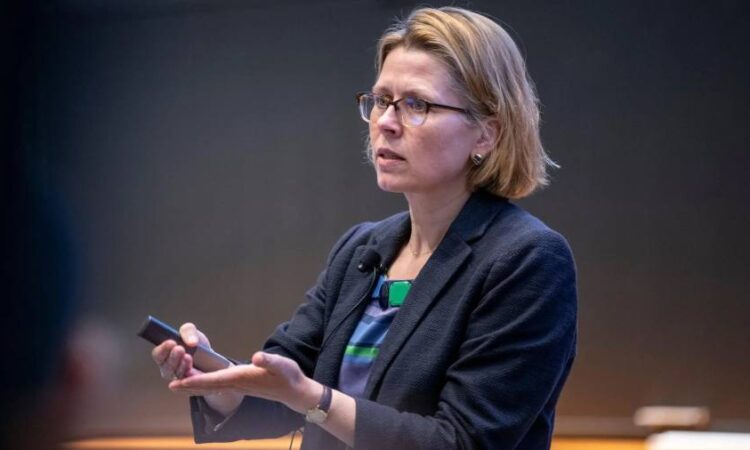
Receive free European Commission updates
We’ll send you a myFT Daily Digest email rounding up the latest European Commission news every morning.
France has urged the European commission’s antitrust regulator to reconsider the nomination to an important post of a former US Department of Justice economist who once worked as a consultant for tech giants such as Apple and Amazon.
Margrethe Vestager, the EU’s competition commissioner, on Tuesday announced the choice of Fiona Scott Morton, a former Obama administration official and Yale university professor, as the new chief economist at the Directorate-General for Competition.
In a flurry of co-ordinated tweets late on Thursday, France’s foreign minister Catherine Colonna expressed “astonishment” at the proposed appointment, while Jean-Noël Barrot, the junior minister for digital affairs, questioned the move “at a time when Europe is embarking on the most ambitious digital regulation in the world”.
“Digital regulation is a key issue for France and for Europe,” Colonna said, as she urged the commission to “reconsider” its nomination.
The job is influential because the person advises the competition commissioner on a wide range of economic policies, including state aid and mergers and acquisitions. Scott Morton, a US national, would be the first non-European appointed to the role. She is set to start on September 1.
The nomination coincides with Brussels beefing up its legal arsenal to oversee tech giants with a series of new laws and enforcement actions. Earlier this year, Vestager threatened to break up Google’s business in the EU for alleged anti-competitive behaviour. Apple, Microsoft and Meta are also under scrutiny.
Scott Morton is expected to oversee market analysis on antitrust and cartel cases and weigh in on broader competition policy.
She would also contribute to deliberations on industrial policy as some member states such as France are putting pressure on the commission to further loosen state aid rules to help the bloc compete with the US, where massive subsidies are on offer to companies in green technologies and semiconductors.
During Emmanuel Macron’s presidency, France has pushed for Europe to cultivate its “strategic autonomy”, a term it uses to mean that the region should not rely on outside powers such as the US or China for its defence or economic needs.
The stance partly explains Paris’s reticence about an American being parachuted into an important EU post, said a French official, as well as concern over Scott Morton’s former consulting work for tech companies. The official said they planned to request more transparency on the matter.
Although some of her consulting work for big tech groups occurred several years ago, Morton Scott has more recently been an “economic expert” working on behalf of Microsoft in connection with its proposed acquisition of video games maker Activision Blizzard. US and UK competition regulators have challenged the deal and legal wrangling is ongoing.
France’s concerns were echoed on Friday by the leaders of the European parliament’s four major political groups, who wrote a letter to Vestager asking her “to reverse the decision”. They argued that a non-European should not be considered for “such a high-ranking and strategic position” and highlighted “potential conflict of interests”.
In the statement announcing Scott Morton’s nomination, the commission praised her “distinguished academic background and decades of experience in economic analysis and competition policy” and said she was “highly suitable to advise on the economic aspects relating to the policy development and enforcement of competition rules in the EU”.
Benjamin Haddad, a French politician from Macron’s party, asked: “Was there no European citizen who had the required skills?”
The row comes at an awkward time for Vestager, who has announced her candidacy for the presidency of the European Investment Bank in the autumn — a decision taken by national capitals. Paris is leaning towards backing a Spanish candidate for the job.
Scott Morton declined to comment on Friday.
The European commission said that the decision was made in February to open up the job to non-EU candidates given the specific skills needed.
Eleven applicants were considered before selecting Scott Morton, who the commission described as the most qualified candidate for the post.
The commission examined potential conflicts of interest and determined that Scott Morton should not work on cases on which she had previously worked. In the first two years of her tenure, she would also have to recuse herself from casework involving companies she was a consultant for.
“The decision was made. We see no grounds to reconsider,” the commission said.
Additional reporting by Ian Johnston in Brussels





